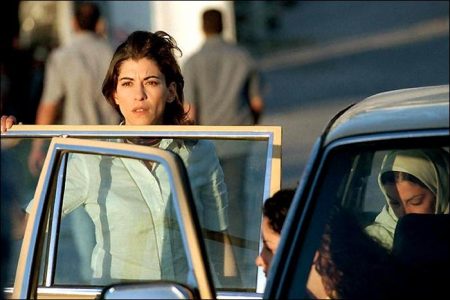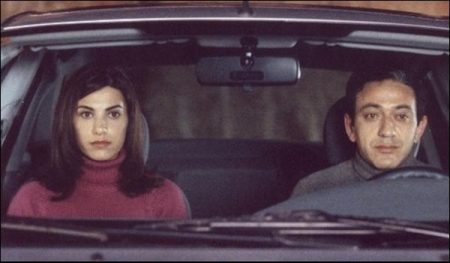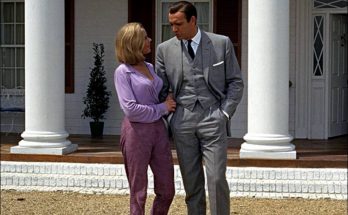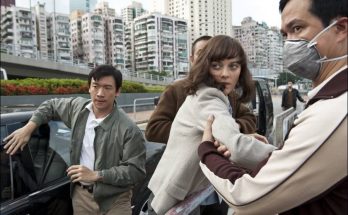Palestinian Cinema. The film, Paradise Now, tells the story of suicide activists through the main character Said, and that death has become a daily conversation in everyday life, and that people are constantly talking about death and killing, even when eating. Another character in the film is Suha, the sister of the suicide bomber Abu Assam.
It is based on the fact that it has a military force that needs to be done and that the actions in return harm the Palestinian people. Said persistently stresses that Israel does not need excuses for its attacks. Regardless of how the director of the film tries to explain that the action is wrong, it cannot provide a solution to correct the mistake.
The entire film, shot in Nablus, tries to present a suicide bomber’s point of view in all its aspects, so that throughout the film, suicidal activists are shown how they are mentally prepared for this process and are told that they will go to heaven when they die. As it can be understood from here, the existence of the religious factor and especially the jihad belief in Islam constitutes the main premise of the activists. In the film, the scenes of violence are hardly shown at all.
Although the film tries to tell through the Said that it is not the solution to the suicidal acts, it is left alone with the conscience of the audience in the face of Said’s answers for the reasons for the action. The promised paradise encourages more thinking and empathy and conveys messages to the audience. The film is brought together with the synthesis of psychological and political oppositions and successfully carries the most important problem of Palestine to the big screen of a people trying to make their voice heard in the face of Israel’s new occupied territories.
Similarly, the 2002 film Elia Suleyman’s Divine Intervention approaches the Israeli-Palestinian question in a dark sense of humor and draws attention with its silence, non-linear narration, and its rich structure consisting of several parts instead of a single story. Eli Süleyman shapes his cinema against power, oppression and violence, and in this respect, he focuses on themes that will serve his subjects. Without making too much dialogue in the cinema, the director creates his discourse by using silent and impressive images and humor elements.
Divine Intervention is built on a nonlinear structure with three main characters, and the film, in which different events and characters are housed, creates an admirable unity with the resistance of these people and their common denominators. Ironically, the scenes and dialogues in the film evoke the rhetoric that Israel has spoken to Palestine over the years. For example, the dialogue between a foreign tourist and Israeli police in the film, the Israeli police responds to the tourist asking “I do not know”, and the Israeli police ask the address of the Palestinian youth with the hands and blindfolded behind the vehicle is a very important message to receive from the young Palestinian bears.
The scene proves that Palestinians are the real owner of Palestine, and that it is an invading state that embodies Israel through a police officer. The film builds its entire narrative on this fact and responds in an effective way to counter the injustice of Israel, the only country in the world that refuses to recognize the boundaries of the country. In the film, almost every Palestinian passing through military checkpoints is treated as a terrorist by Israeli soldiers and this is followed in silence.
Another important scene on Palestine’s real ownership is the release of a balloon with a picture of Yasser Arafat on the sky and the attention of soldiers at the checkpoint. So much so that when the soldiers watching the balloon with binoculars in their hands, Yasser Arafat’s picture is waiting for orders from their bases to shoot the balloon, this scene is mocked by Israeli soldiers and their paranoia. Ariel Sharon’s visit to the Harem al-Sharif on September 28, 2000 is an answer to the provocation, as the balloon travels all over Jerusalem and finally stands on the dome of the Al-Aqsa Mosque.
When the whole film is considered, the director constructs his multi-layered narrative with the elements of humor in general with the fact that Palestine belongs to the Palestinians on the axis of the Israeli-Palestinian question. Israel has been cited as the source of all the problems Palestinians are experiencing, and it is clearly declared that those responsible are the State of Israel with an environment of power, oppression and violence. The director accomplishes all this by making fun of Israeli soldiers from time to time, sometimes disregarding the power.
Another director of Palestinian cinema, Michel Khleifi’s 1987 film The Wedding in Galilee (Weddin in Galilele) began to be filmed before the First Intifada and continued to do so when it started. The film, which is the first feature film of a Palestinian, tries to explain the struggle of a village headman who wants to marry his son with the Israeli bureaucracy in an effective film language. In order to get a wedding permit, the Palestinian Mukhtar is forced to invite Israeli military leaders and men to the wedding, while the film criticizes the Israeli occupation and bureaucracy and opposes patriarchal traditions.
The Wedding in Galilee is a testament to the fact that Palestinians are being monitored and controlled by Israeli occupation forces in every aspect of their lives. The fact that Israeli rulers impose Mukhtar Abu Adel to attend the wedding casts a shadow on people’s happiest days and keeps them under pressure. The fact that the bureaucracy is practicable in all areas of life deprives Palestinians of their liberty by almost keeping their lives under grip. Control and supervision, curfews, as well as discontinued buses and ID checks, which are frequently applied by Israeli forces, are evident throughout the film as Israeli soldiers treat Palestinians as terrorists.
Another remarkable feature of the film is that the grandfather of an old grandfather in the film told that they lived in better conditions under Ottoman rule before the British came. The grandfather’s mention of the Turks to his grandson and remembrance of those days is a demonstration of the uneasy life that the Palestinians live in, because the grandfather speaks of those days with longing and smiles.
Throughout the film, military vehicles circulate in the village very often and curfew is frequently applied. The participation of the Israeli rulers and their prayers for the help and healing of an Israeli woman soldier who became ill at the wedding is a remarkable example of Palestine’s solidarity and humanity. In the film, traditional rituals are performed during the wedding and Palestinian tradition and culture are performed. At this point, it is irony that the Israeli female soldier is influenced by the Palestinian culture, a culture that is wanted to be destroyed by Israel and an admiration by an Israeli is tried to draw attention to the inaccuracy of the situation.
When the film is considered as a whole, the sanctions of the Israeli military administration on the lives of the Palestinians and the atmosphere of anxiety and concern constantly created by an occupying country dominate the film in general. The mined lands encircled by Israel and included in the film are indicative of trapped and imprisoned, as well as the fact that people are being monitored and kept under control even in their most beautiful days.
Being present at a wedding by participating in a Palestinian wedding increases Israel’s legitimacy and acceptability in a sense. It can be said that when the film is evaluated on the axis of Israel-Palestine issue, Israel’s settlement policy has been criticized within the framework of bureaucratic pressures and it is tried to be told that Palestinians existed and should be seen with their culture, the rightful struggle of a people deprived of freedom once again expressed itself successfully on the screen.
Visits: 251




